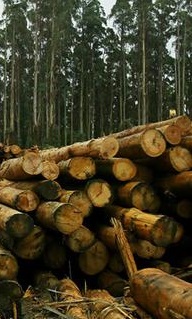Tassie seeks to weaken tree deal
 The Tasmanian Government could be moving to open up protected logging reserves.
The Tasmanian Government could be moving to open up protected logging reserves.
Forestry Tasmania says there has been an increase in private forest harvests, indicating the industry is growing stronger, and called for an early end to a logging moratorium so that businesses can continue their upward climb.
Private Forests Tasmania says there has been a 48.5 per cent rise in harvests in private forests in the 2015-16 year, but that growth was largely in timber plantations, and Forestry Tasmania’s call relates to native forests.
The ‘private forest’ designation covers native forests and timber plantations on privately-owned land. Tasmania’s forests cover about 50 per cent of the total area of the state, with private forests making up about 31 per cent of that area.
Resources Minister Guy Barnett has conceded ‘private’ and ‘native’ are two different things, but says there has also been an increase in activity in the private native forest sector, and admitted the Forest Industries Association needed more information before unlocking any public native forests.
Mr Barnett is calling on the Government to do an assessment.
“We have a plan for growth in the forest sector to grow the industry to create jobs, particularly in regional communities,” he said.
It is the latest move in Mr Barnett’s push to get more private money for Forestry Australia to “stand on its own feet”.
Greens Leader Cassy O'Connor said the Resources Minister was misleading the public.
“The Government has made no case for logging the 400,000 hectares — they know the growth in forestry in Tasmania is from the plantation sector,” she said.
“The two are totally unconnected, Minister Barnett is making it up as he goes along.”
The Wilderness Society says only “desperation or incompetence” would cause the Government to use Private Forests Tasmania figures to argue for reversing the moratorium.
“This looks like a delusional attempt to hide behind the good work of the plantation sector and somehow point to the fact that this means they need to undo reserves so logging can begin again,” a Society spokesperson said.







 Print
Print